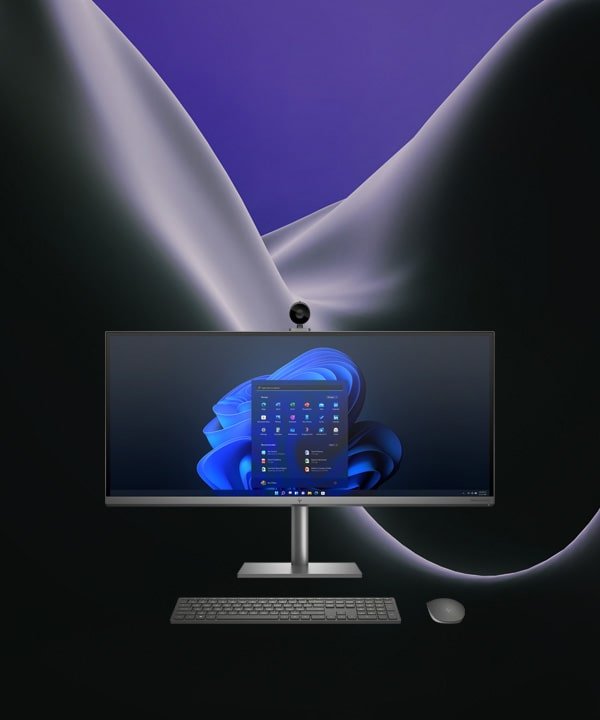In today’s fast-paced business world, selecting the right computer can significantly impact your company’s productivity. Whether you run a small startup or a large enterprise, the right technology will help streamline operations, enhance employee performance, and ensure smoother workflows. In this article, we’ll walk you through how to choose the best computer to suit your company’s needs and maximize efficiency.
1. Identify Your Business Needs
The first step in choosing the right computer is to clearly identify the tasks your business will be performing. Different companies have different requirements, so understanding your operational needs will narrow down your options.
- Office Work: For tasks like word processing, spreadsheet management, and web browsing, a mid-range computer with basic specifications will be sufficient. Look for devices with at least an Intel Core i3 processor, 8GB of RAM, and a 256GB SSD for reliable performance.
- Graphic Design & Video Editing: If your business deals with creative tasks such as graphic design, video editing, or 3D rendering, you’ll need a computer with higher processing power. Choose one with a dedicated graphics card (e.g., Nvidia or AMD), a powerful CPU (Intel Core i7 or higher), and at least 16GB of RAM.
- Data Analysis & Programming: For data-heavy tasks, such as data analysis or software development, prioritize high-speed processors and ample memory. Consider computers with Intel Core i9 or AMD Ryzen 9, a minimum of 32GB RAM, and SSD storage for fast data access.
2. Consider Portability Needs
If your employees frequently travel or work remotely, portability is a key factor to consider. Laptops provide mobility without sacrificing too much power, while desktop computers are more suited for stationary work environments.
- Laptops: For companies that prioritize flexibility, laptops like the Dell XPS or MacBook Pro are ideal. They offer high performance in a compact form, making them perfect for working on the go.
- Desktops: If you need robust computing power for tasks like server management, desktop computers such as the HP EliteDesk or Dell Optiplex are a better choice. They offer better performance at a lower cost than equivalent laptops.
3. Prioritize Security Features
Security is essential for every business, especially if you’re handling sensitive information. Choosing a computer with built-in security features can help protect your business from cyber threats.
- Encryption: Ensure that your computers offer hardware-based encryption, such as Trusted Platform Module (TPM) chips, to secure data at rest.
- Fingerprint Scanners and Facial Recognition: Many business-grade laptops now come with biometric security features, such as fingerprint readers or facial recognition, adding an extra layer of protection.
- Security Software: Always invest in top-tier antivirus software and make sure that your operating system supports regular updates to counter security vulnerabilities.
4. Evaluate the Budget and Total Cost of Ownership
Your company’s budget will be a major factor in determining the type of computer to purchase. It’s important to look beyond the initial cost and consider the total cost of ownership (TCO).
- Initial Cost vs. Longevity: While high-performance computers tend to be more expensive, they also have a longer lifespan and require fewer upgrades. Investing in a quality machine upfront can save your business money in the long term.
- Maintenance and Upgrades: Consider the ease of maintenance and whether the computer allows for future upgrades, such as adding more RAM or storage. Desktop computers, for instance, are generally easier to upgrade than laptops.
5. Look for Scalability
As your business grows, your technology needs may evolve. Investing in scalable solutions ensures that your computers can keep up with your company’s expansion.
- Cloud Integration: Ensure the computer systems you purchase can easily integrate with cloud services. This allows you to scale your storage and computing power as needed without constantly upgrading your hardware.
- Modular Systems: Some desktop systems, such as Dell’s Optiplex series, offer modularity, allowing you to swap out parts as your company’s needs change.
Conclusion
Choosing the best computer for your business is not just about selecting the most powerful device. It’s about understanding your company’s specific needs, considering factors like portability, security, and budget, and investing in technology that will help your business grow. By taking a strategic approach to your computer purchases, you can enhance productivity, improve employee satisfaction, and ensure that your company remains competitive in the ever-changing business landscape.



